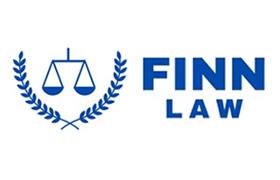Dormansville Criminal Lawyer, New York, page 2
Sponsored Law Firm
-
 x
x

Click For More Info:
-
Finn Law Offices
12 Sheridan Ave. Albany, NY 12207» view mapAccident & Injury and Criminal Defense Action-Oriented Legal Advocacy
At Finn Law Offices, our attorney relies upon his experience and dedication to protect your rights in a personal injury, employment law, criminal defense or civil rights case.
800-872-6030
Jennifer Bayles
Criminal, Divorce & Family Law, Business
Status: In Good Standing *Status is reviewed annually. For latest information visit here Licensed: 21 Years
Janet Schwarzenegger
Divorce & Family Law, Criminal
Status: In Good Standing *Status is reviewed annually. For latest information visit here Licensed: 26 Years
John R. Sandleitner
Lawsuit & Dispute, Divorce & Family Law, Criminal
Status: In Good Standing *Status is reviewed annually. For latest information visit here Licensed: 26 Years
Stephen Van Mcquide
Real Estate, Estate, Criminal, Accident & Injury
Status: In Good Standing *Status is reviewed annually. For latest information visit here Licensed: 58 Years
Louis Raymond Neri
Real Estate, Estate, Criminal
Status: In Good Standing *Status is reviewed annually. For latest information visit here Licensed: 42 Years
Gina Michelle Spadaro
DUI-DWI
Status: In Good Standing *Status is reviewed annually. For latest information visit here
Lowell R. Siegel
Employment, Criminal, Federal Appellate Practice, Family Law
Status: In Good Standing *Status is reviewed annually. For latest information visit here Licensed: 37 Years
Samuel Breslin
Lawsuit & Dispute, Criminal, Car Accident, Accident & Injury
Status: In Good Standing *Status is reviewed annually. For latest information visit here
James M. Wagman
Traffic, Estate Planning, Divorce & Family Law, Criminal, Motor Vehicle
Status: In Good Standing *Status is reviewed annually. For latest information visit here Licensed: 41 Years
Veronica Maxine Kosich
Wills & Probate, Estate Planning, Divorce & Family Law, Criminal
Status: In Good Standing *Status is reviewed annually. For latest information visit here Licensed: 26 Years
 Ryan M. Finn Albany, NY
Ryan M. Finn Albany, NY AboutFinn Law Offices
AboutFinn Law Offices